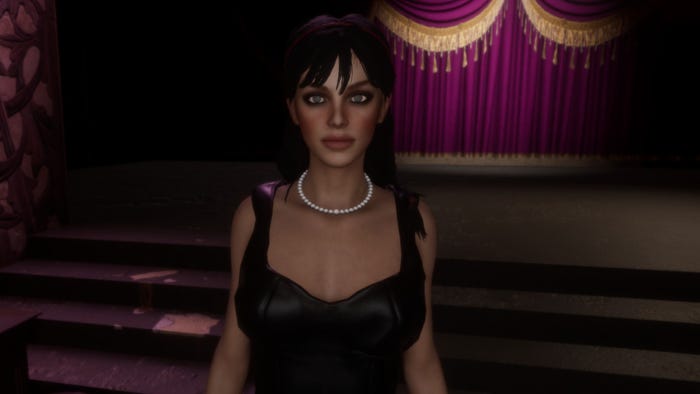
To mark the 7-month anniversary of Vaudeville’s release, we decided to write a retrospective of what has happened so far. Not really a post-mortem, one of those essays you write after the game’s development has been completed and wrapped up, because Vaudeville is alive and kicking, still in Early Access and still evolving with daily efforts from us and the community. We won’t be done with the project until we have achieved our vision.
HISTORY
Vaudeville started as a prototype when we read about a company, Inworld AI, on the Unity Asset Store that offered a service to create AI-driven NPCs. The prototype worked well, so we decided to turn it into a full game. The goal was to get to market as quickly as possible and be the first to release a game based on conversational AI, and we did that. And when I say “we” I mean the company, but actually Bumblebee was a one-man team at the time. Anyway, “we” were so quick that we also beat Inworld AI themselves, who were working on their own implementation of a crime game called Inworld Origins (we didn’t know about that, to be honest; we had been living under a rock during the whole development of Vaudeville) and released it a month after us.
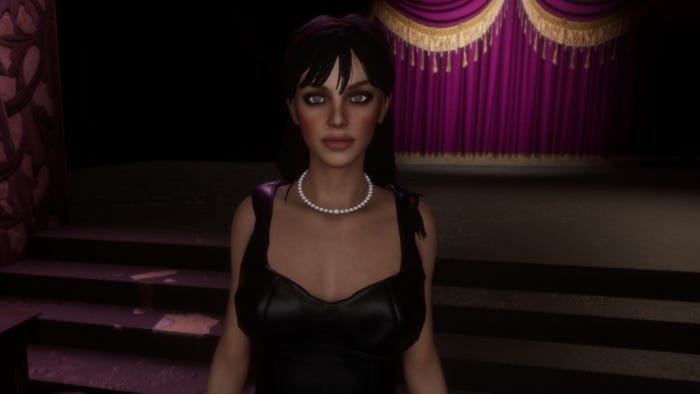
RECEPTION
The game started to generate interest straight away, also with the help of content creators we were able to reach through our partners Lurkit and Keymailer, but the real breakthrough came when MoistCr1TiKal picked it up semi-randomly and started streaming the game, driving hundreds of thousands of users to our Steam page. Other top streamers followed suit: HasanAbi, WillNeff and Videogamedunkey were among the first.
User reception has been very polarised. Initially, there was a lot of excitement, with the few negative reviews mostly focusing on technical issues. Users flooded the Discord channel and started analysing the game together in our chats. Their feedback was invaluable in improving the game, as well as helping us resolve some temporary technical problems.
With the increasing popularity of AI techniques, their development and rising expectations, the games have started to receive negative reviews regarding the limitations of the AI, despite our hard efforts to improve the game. Unfortunately, this polarisation of opinion has had a negative impact on the Steam ratings, which are evenly split between enthusiasts and haters, resulting in an average rating that is likely to deter many potential buyers. It’s hard to calculate the impact of the reviews on sales, which have been around 7,500 so far. What we do know is that people are still buying the game and there are many (around 13,000 outstanding wishlists) who are still trying to make up their minds, perhaps waiting for the game to leave Early Access or for the reviews to improve.
It’s also worth noting that none of the major video game press has written about the game yet, probably because of its early access status, but that’s strange enough, given the interest the game has generated. Perhaps this is because there is no big publisher pushing the game </tinfoil mode off>.
By the way, we stand by our decision to self-publish the game and do the promotion, releases and all that goes with it. We might have made a lot more money if we had, but in the end, we think it was worth it to retain our independence.
We won three awards: 2nd place at the Game Development World Championship GCore Cloud Award and two Gold Winner Awards at NYX, one for Best Innovation and the other in the Indie category. There are at least two research papers in progress on Vaudeville (we cannot disclose them until they are published), and we think that this is extremely cool.
Today, Vaudeville is a use case on the Unity Asset Store (the same asset store where everything started) and on the Inworld AI website. We are being contacted by companies and individuals who want to work with us. We are very proud of what we have achieved thus far.
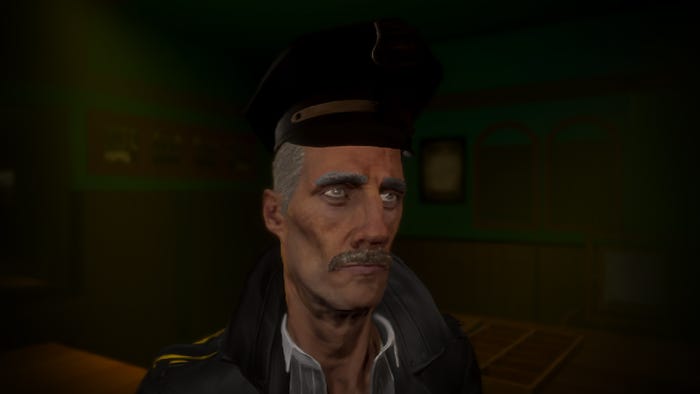
TECHNICAL ISSUES
The biggest challenges were using a cutting-edge technology that was still in its infancy and relying on an external API. The former meant that the outcome of the chats and the playability of the games were not 100% predictable for us and partially out of our control. That’s why we opted for an early access release, because we really needed the community’s feedback to help us fine-tune the AIs. The latter caused the temporary issues mentioned earlier, leading to the service being unreachable on several occasions, most notably the night MoistCr1TiKal streamed the game and hit all the caps. The issues have now been resolved and the service has been stable for months.
COSTS
We have managed to keep costs under control so far, which is not to say that it has been cheap. In the first month we generated a huge amount of traffic, which resulted in a substantial bill from Inworld. However, the costs were still manageable compared to the Steam revenue. It is important to note, however, that Steam payments are delayed by a month, so if you are going to venture into this kind of business, make sure you have a buffer. Fortunately, the people at Inworld have been kind enough to delay their billing for a month, making payment easier. They also changed their pricing model immediately afterwards, making it fairer and more affordable for most users.
Another recurring cost is the usage of DeepL to translate the dialogues to and from 12 different languages in real time, which has been working great for a reasonable price.
We also tried to use a more advanced online service to generate the AI voices, but had to revert to the old ones due to the unsustainable cost. We hope to find a more affordable solution soon, maybe an offline one.
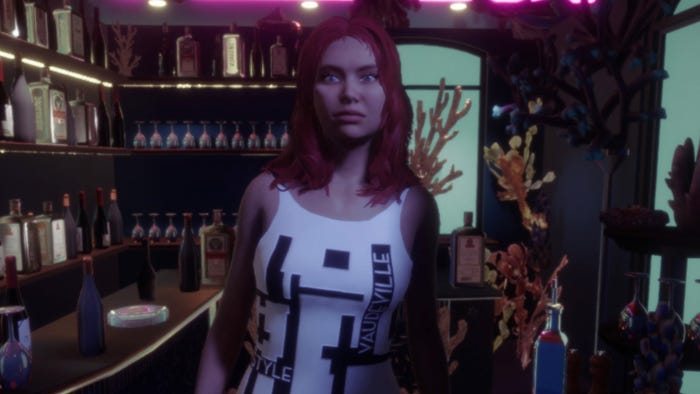
DEVELOPMENT AFTER EARLY ACCESS
We have worked tirelessly in the eight months since Early Access to deliver improvements, sometimes daily, often weekly. These are some of the most appreciated features: we improved the AI and the content, translated the dialogues into twelve languages, developed the story mode, improved the interface, developed a Linux / SteamOS (Steam Deck Verified) version, implemented full game control support, added a new character, improved the 3D environments, increased accessibility, added achievements and community items.
PLANS FOR THE FUTURE
As we have said before, we are committed to developing Vaudeville until we are completely satisfied with our efforts. This means that while we continue to improve the game’s features and fix as many bugs as possible, we will slow down our work on the final version of the story a bit to try and understand how we can work with our partners to make the AI’s behaviour more reliable and the game more enjoyable.
Then, we will need to take a break to do something else. Probably a more casual game with a smaller scope, just to reset our brains and not get overwhelmed by Vaudeville before we start creating new content or new iterations of the game.
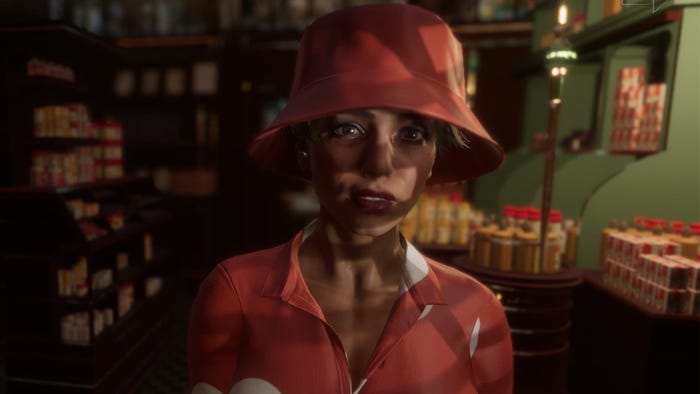
BUMBLEBEE STUDIOS’ GROWTH
Since the release of Vaudeville, Bumblebee has grown from a one-man, part-time studio to a team of two full-time developers. From a tiny company to a self-funded studio capable of standing on its own two feet. Our goal is to continue on this path. We are convinced that a small studio like ours, driven by its passion, can withstand the crisis the industry is going through and even thrive in this stormy weather.

LINKS
Bumblebee Studios: https://www.bumblebee-studios.se
Vaudeville on Steam: https://store.steampowered.com/app/2240920/Vaudeville
Vaudeville’s Discord: https://discord.gg/2scPgBMkaq
MoistCr1TiKal’s Stream: https://www.youtube.com/watch?v=wePxGlJ5nY0
HasanAbi’s Stream: https://www.youtube.com/watch?v=EAqnrLrfWGQ
Videogamedunkey’ Stream: https://www.youtube.com/watch?v=Kw51fkRiKZU
Unity Asset Store AI Hub: https://assetstore.unity.com/ai-hub
Vaudeville on Keymailer: https://www.keymailer.co/g/games/85436eda
Vaudeville on Lurkit: https://www.lurkit.com/campaigns/quests/vaudeville
Inworld AI on Vaudeville: https://inworld.ai/case-study/ai-npcs-helped-an-indie-studio-get-300000-in-free-publicity






